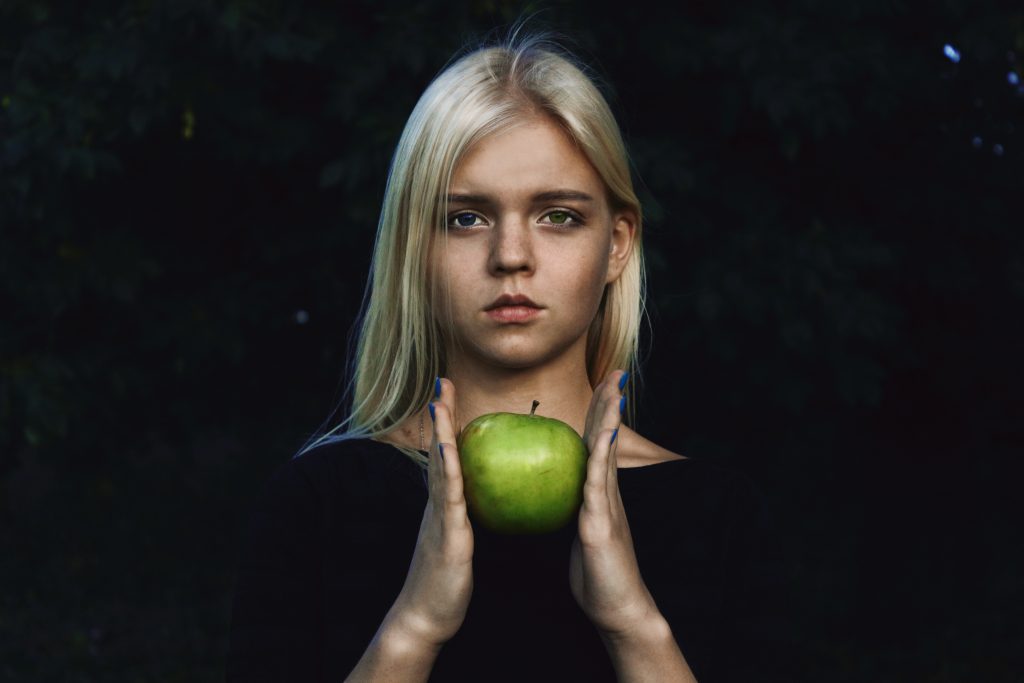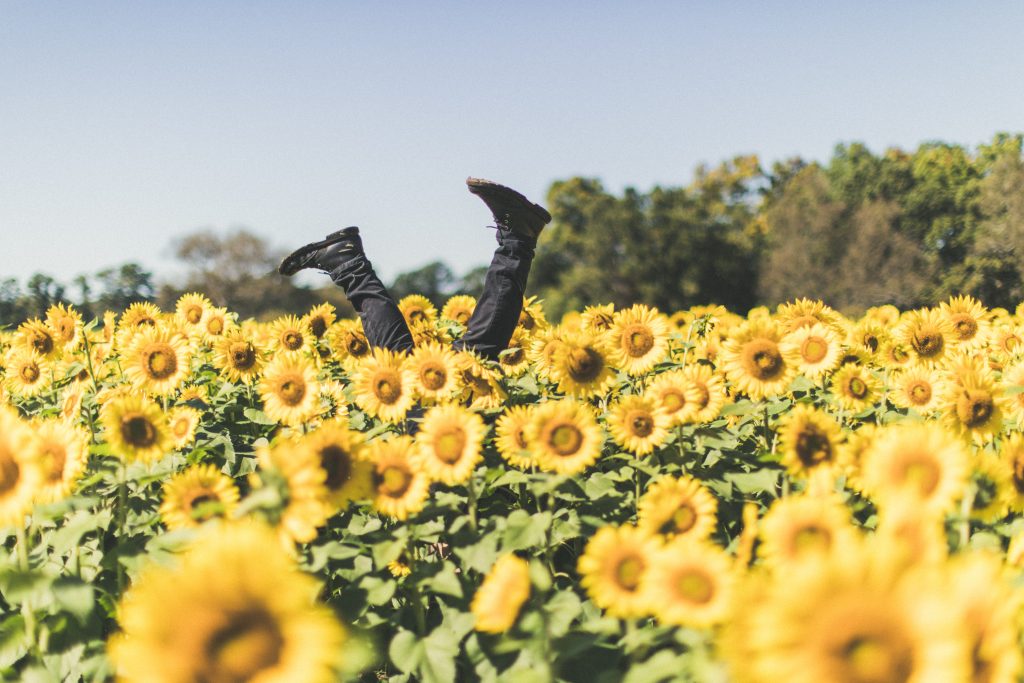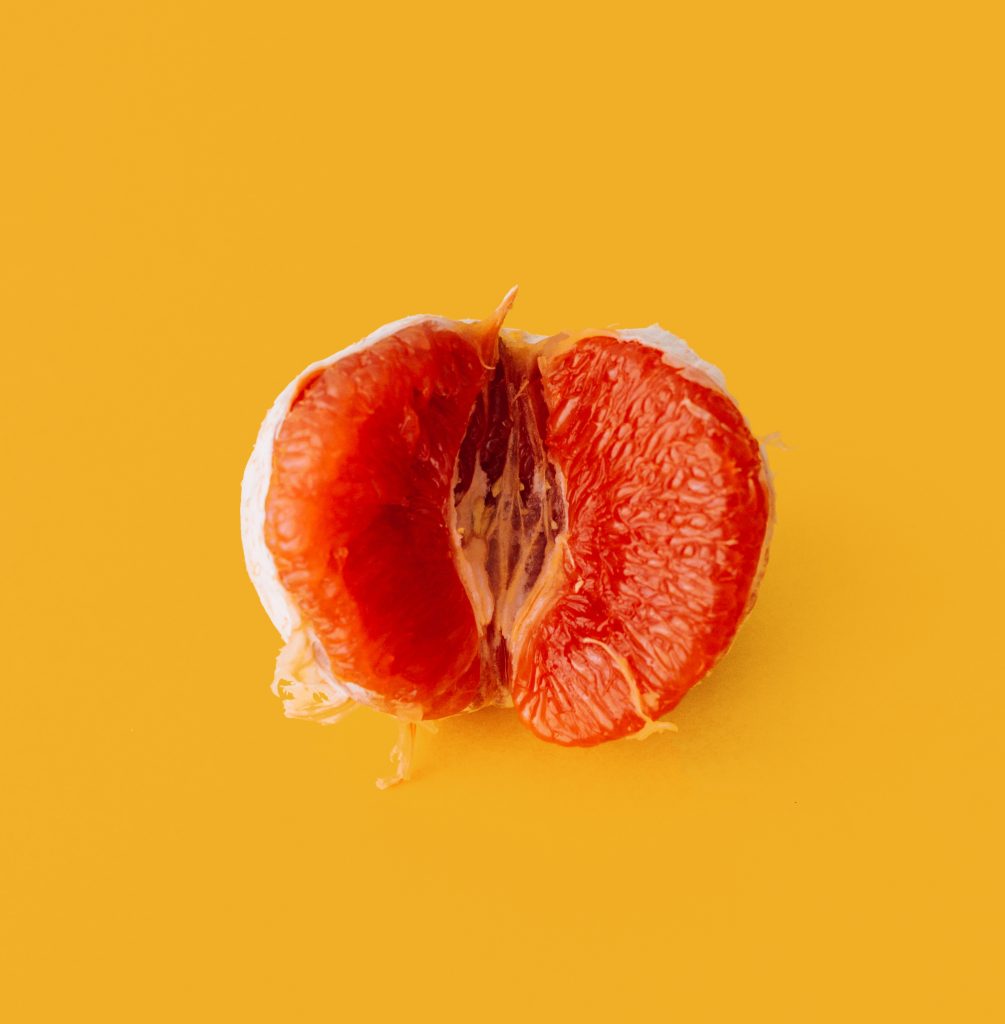For today’s Mental Health Monday we have a guest blog from the unique and truly wonderful person that is Harlequin Grim.
The Innocence of Being Passionate – Why We Shouldn’t Feel Guilty for Pursuing Dreams or Passions
Misconception
‘Innocence’ is that misconstrued term that we find attached to children and those who are ‘untouched’ by the corruption of adult life. It seems only logical, then, to think that an adult who is heavily stressed and suffering a great deal from their numerous responsibilities is therefore mature. The weight of their burdens and heavy sighs become emblems of an adult forming as an adult should.

‘Innocence’ is that misconstrued term that we find attached to children
Simplifying
The question is why is it important to gain greater perspective of a word we use on a daily basis?
Stripped of its common connotation, the traditional definition of innocence is simply an individual’s ‘lack of corruption’. This leaves much to be debated regarding what is ‘innocent’ and what constitutes ‘corruption’.
The charm of innocence lay in its simplicity. We often envy children not for their ignorance, but because their ignorance and lack of cynicism allows them to embody a sense of irreverence to the mental limitations which haunts adults. They paint when they feel like painting. They dance as they wish, how they wish. When something strikes their humor, they laugh with wanton indulgence. Why should they not?
Indeed. Why not?
Now the matter becomes that much more interesting. After all, isn’t happiness the goal? Isn’t innocence, in some fundamental way, commensurate with happiness?

After all, isn’t happiness the goal?
Let’s flip the coin over.
The gift of a developed, adult consciousness lay in the ability to suffer and therefore appreciate bliss and fulfillment in its broad, unbiased totality. All those magnificent shades of suffering and happiness! Unlike a child’s naivety, (the word which I believe should become the host for the negative connotations of ‘innocence’), adults have the mental capacity to face much of life’s mishaps, flaws and imperfections with relative ease, perhaps snatching a few silver linings in the process. In fact, this is what makes adults so special—the potential to steal deeper meanings from even the greatest of calamities.
Still I argue, we needn’t think we’ve lost or sacrificed an ‘innocence’ to master such a mindset. In fact, I think that the more we follow our truest intents with an honest mind, the more we gorge on our passions, the more ‘innocent’ we are.
Tangling the Definition
When I’ve proposed this concept to others the conversation inevitably turns towards sex, that holy grail of both adolescent and adult achievement.

Sex, that holy grail of both adolescent and adult achievement.
It isn’t really all that surprising.
After all, innocence’s secondary attachment is to the concept of virginity and, moreover, one’s losing it and the pursuit for similar encounters thereafter. This is most likely because much of Western culture is predicated on Judaea-Christian belief systems; sex still comes packaged with that taboo of being an act that somehow takes away from our purity as people.
Though we may not hear it, the concept is still dripping with that delicious word: sinful.
Moving away from archaic ways of thinking, we can view sex in a different light. We might find it perfectly natural, even in the stranger circumstances wherein one might imagine whips, cuffs, etc., etc. At its core, sex is simply a pursuit of comfort, connection, no matter the particular peculiarities the act itself might entail.
That got odd. Bear with me.

At its core, sex is simply a pursuit of comfort, connection.
This activity, much like many others centered around passion and emotion, have a tendency to help us cope and forget about outside worries. Temporarily, we forsake the burdens of our ‘adult’ responsibilities to indulge. One might draw a parallel of childhood’s longer stint of blissful ignorance with an adult’s more conscientious and brief ebbs out of stressful mental states. The difference being the conscious decision to forsake thoughts, worries, and responsibilities to instead focus on something individualistic. This embrace of passion relies on instinct. Pursuing it remains, like a child’s play, an intuitive experience.
Broadening the Term
So if innocence is the state of one’s own corruption then how might we find innocence in ourselves? Here we must define what corrupts us. To my mind, ‘corruption’ is needless suffering, stress, worry, and fear … many of these things we come to accept as absolutes and necessary shadows of being an adult. Yet I argue that to live with less stress, to manage our worries, to face our fears and thrive and enjoy life in spite of it all, is to ultimately be embodying a kind of innocence–a free-flowing state of expression which forgets itself.

Savouring the magic
And yet, if we can insist on savoring the magic of our lives and pursuing our innermost happiness, we can truly call ourselves ‘mature’. (Therein lay the clash between common definitions of adulthood, innocence, and maturity.) After all, given the nature of our brief lives, is it not the most responsible thing to do to enjoy it as much as one can? Is responsibility not the concept of doing what ‘should’ be done? In this case: honoring our mortality by seizing every drop of it.
To my mind, it is those who are distracted, those who are drowning in self-imposed anguish, those who lament for all life’s misery and see none of its beauty, those who hear the music but do not dance, and those who do not hear the music at all who are the ‘immature’.
Perhaps, even the naive.
But innocent, no. Not the innocent.

Those who lament for all life’s misery and see none of its beauty
Innocence and Art
My unorthodox and perhaps stretched view of innocence serves to highlight the efforts of the impassioned, the conscious, and the visionary. Encased in individual and artistic pursuits is the desire to break mental shackles and cultivate higher thought. A sort of transcendence of our base obligations and limitations.
There, in pursuit of our highest ideals, regardless of the struggle, the grit, the difficulty, the pain, is a kind of purity. An obtainment one can only call a very particular and certainly odd kind of innocence.
Thanks to Harlequin for this excellent blog piece which fits perfectly in our Mental Health Monday series. You can read more about him and by him on his website here.
If you want to submit your blog pieces to us, get in touch at paul@poetsin.com
Please follow and like us:
For today’s Mental Health Monday we have a guest blog from the unique and truly wonderful person that is Harlequin Grim.
The Innocence of Being Passionate – Why We Shouldn’t Feel Guilty for Pursuing Dreams or Passions
Misconception
‘Innocence’ is that misconstrued term that we find attached to children and those who are ‘untouched’ by the corruption of adult life. It seems only logical, then, to think that an adult who is heavily stressed and suffering a great deal from their numerous responsibilities is therefore mature. The weight of their burdens and heavy sighs become emblems of an adult forming as an adult should.
‘Innocence’ is that misconstrued term that we find attached to children
Simplifying
The question is why is it important to gain greater perspective of a word we use on a daily basis?
Stripped of its common connotation, the traditional definition of innocence is simply an individual’s ‘lack of corruption’. This leaves much to be debated regarding what is ‘innocent’ and what constitutes ‘corruption’.
The charm of innocence lay in its simplicity. We often envy children not for their ignorance, but because their ignorance and lack of cynicism allows them to embody a sense of irreverence to the mental limitations which haunts adults. They paint when they feel like painting. They dance as they wish, how they wish. When something strikes their humor, they laugh with wanton indulgence. Why should they not?
Indeed. Why not?
Now the matter becomes that much more interesting. After all, isn’t happiness the goal? Isn’t innocence, in some fundamental way, commensurate with happiness?
After all, isn’t happiness the goal?
Let’s flip the coin over.
The gift of a developed, adult consciousness lay in the ability to suffer and therefore appreciate bliss and fulfillment in its broad, unbiased totality. All those magnificent shades of suffering and happiness! Unlike a child’s naivety, (the word which I believe should become the host for the negative connotations of ‘innocence’), adults have the mental capacity to face much of life’s mishaps, flaws and imperfections with relative ease, perhaps snatching a few silver linings in the process. In fact, this is what makes adults so special—the potential to steal deeper meanings from even the greatest of calamities.
Still I argue, we needn’t think we’ve lost or sacrificed an ‘innocence’ to master such a mindset. In fact, I think that the more we follow our truest intents with an honest mind, the more we gorge on our passions, the more ‘innocent’ we are.
Tangling the Definition
When I’ve proposed this concept to others the conversation inevitably turns towards sex, that holy grail of both adolescent and adult achievement.
Sex, that holy grail of both adolescent and adult achievement.
It isn’t really all that surprising.
After all, innocence’s secondary attachment is to the concept of virginity and, moreover, one’s losing it and the pursuit for similar encounters thereafter. This is most likely because much of Western culture is predicated on Judaea-Christian belief systems; sex still comes packaged with that taboo of being an act that somehow takes away from our purity as people.
Though we may not hear it, the concept is still dripping with that delicious word: sinful.
Moving away from archaic ways of thinking, we can view sex in a different light. We might find it perfectly natural, even in the stranger circumstances wherein one might imagine whips, cuffs, etc., etc. At its core, sex is simply a pursuit of comfort, connection, no matter the particular peculiarities the act itself might entail.
That got odd. Bear with me.
At its core, sex is simply a pursuit of comfort, connection.
This activity, much like many others centered around passion and emotion, have a tendency to help us cope and forget about outside worries. Temporarily, we forsake the burdens of our ‘adult’ responsibilities to indulge. One might draw a parallel of childhood’s longer stint of blissful ignorance with an adult’s more conscientious and brief ebbs out of stressful mental states. The difference being the conscious decision to forsake thoughts, worries, and responsibilities to instead focus on something individualistic. This embrace of passion relies on instinct. Pursuing it remains, like a child’s play, an intuitive experience.
Broadening the Term
So if innocence is the state of one’s own corruption then how might we find innocence in ourselves? Here we must define what corrupts us. To my mind, ‘corruption’ is needless suffering, stress, worry, and fear … many of these things we come to accept as absolutes and necessary shadows of being an adult. Yet I argue that to live with less stress, to manage our worries, to face our fears and thrive and enjoy life in spite of it all, is to ultimately be embodying a kind of innocence–a free-flowing state of expression which forgets itself.
Savouring the magic
And yet, if we can insist on savoring the magic of our lives and pursuing our innermost happiness, we can truly call ourselves ‘mature’. (Therein lay the clash between common definitions of adulthood, innocence, and maturity.) After all, given the nature of our brief lives, is it not the most responsible thing to do to enjoy it as much as one can? Is responsibility not the concept of doing what ‘should’ be done? In this case: honoring our mortality by seizing every drop of it.
To my mind, it is those who are distracted, those who are drowning in self-imposed anguish, those who lament for all life’s misery and see none of its beauty, those who hear the music but do not dance, and those who do not hear the music at all who are the ‘immature’.
Perhaps, even the naive.
But innocent, no. Not the innocent.
Those who lament for all life’s misery and see none of its beauty
Innocence and Art
My unorthodox and perhaps stretched view of innocence serves to highlight the efforts of the impassioned, the conscious, and the visionary. Encased in individual and artistic pursuits is the desire to break mental shackles and cultivate higher thought. A sort of transcendence of our base obligations and limitations.
There, in pursuit of our highest ideals, regardless of the struggle, the grit, the difficulty, the pain, is a kind of purity. An obtainment one can only call a very particular and certainly odd kind of innocence.
Thanks to Harlequin for this excellent blog piece which fits perfectly in our Mental Health Monday series. You can read more about him and by him on his website here.
If you want to submit your blog pieces to us, get in touch at paul@poetsin.com
admin